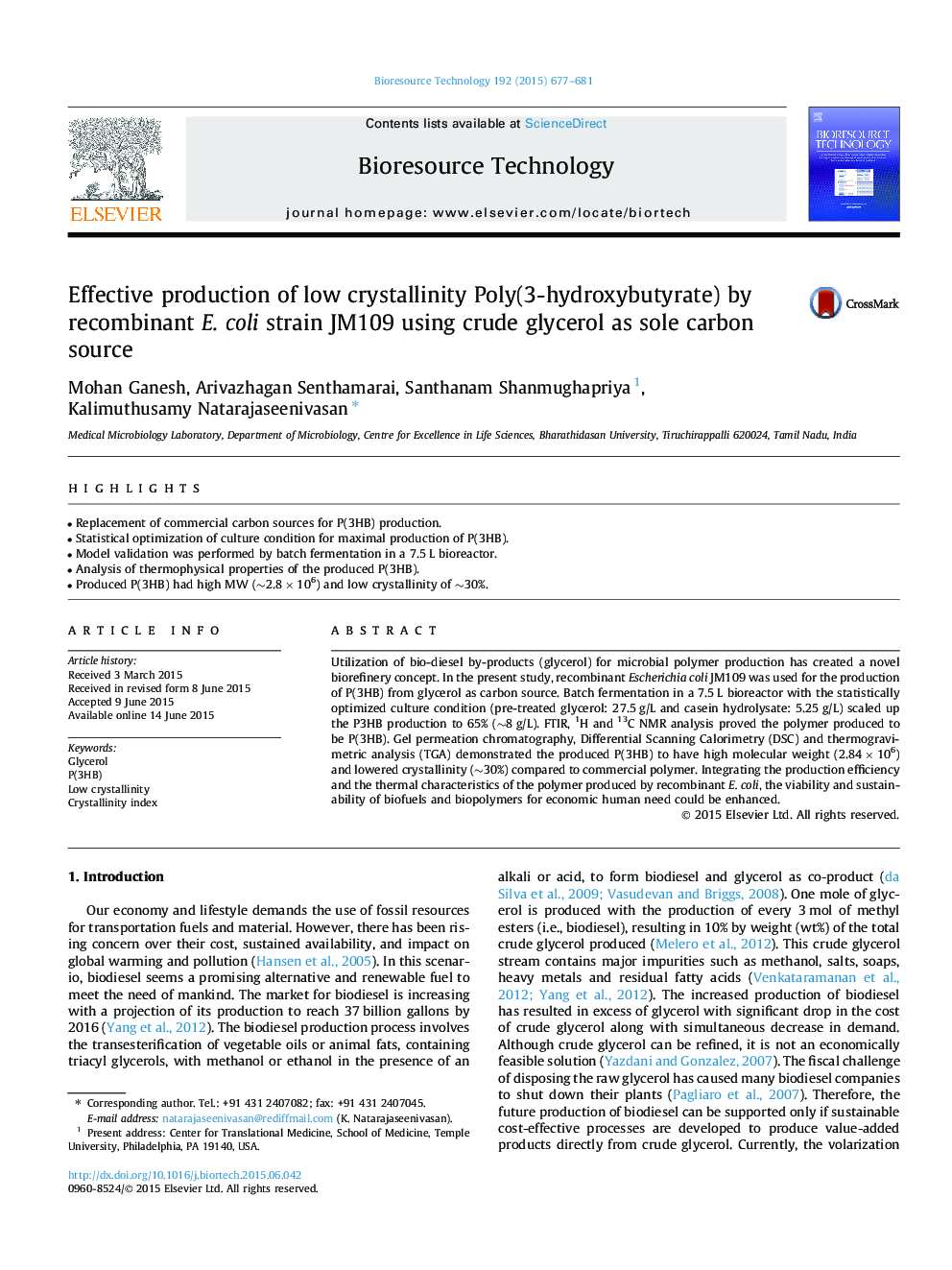| Article ID | Journal | Published Year | Pages | File Type |
|---|---|---|---|---|
| 7074662 | Bioresource Technology | 2015 | 5 Pages |
Abstract
Utilization of bio-diesel by-products (glycerol) for microbial polymer production has created a novel biorefinery concept. In the present study, recombinant Escherichia coli JM109 was used for the production of P(3HB) from glycerol as carbon source. Batch fermentation in a 7.5Â L bioreactor with the statistically optimized culture condition (pre-treated glycerol: 27.5Â g/L and casein hydrolysate: 5.25Â g/L) scaled up the P3HB production to 65% (â¼8Â g/L). FTIR, 1H and 13C NMR analysis proved the polymer produced to be P(3HB). Gel permeation chromatography, Differential Scanning Calorimetry (DSC) and thermogravimetric analysis (TGA) demonstrated the produced P(3HB) to have high molecular weight (2.84Â ÃÂ 106) and lowered crystallinity (â¼30%) compared to commercial polymer. Integrating the production efficiency and the thermal characteristics of the polymer produced by recombinant E. coli, the viability and sustainability of biofuels and biopolymers for economic human need could be enhanced.
Related Topics
Physical Sciences and Engineering
Chemical Engineering
Process Chemistry and Technology
Authors
Mohan Ganesh, Arivazhagan Senthamarai, Santhanam Shanmughapriya, Kalimuthusamy Natarajaseenivasan,
